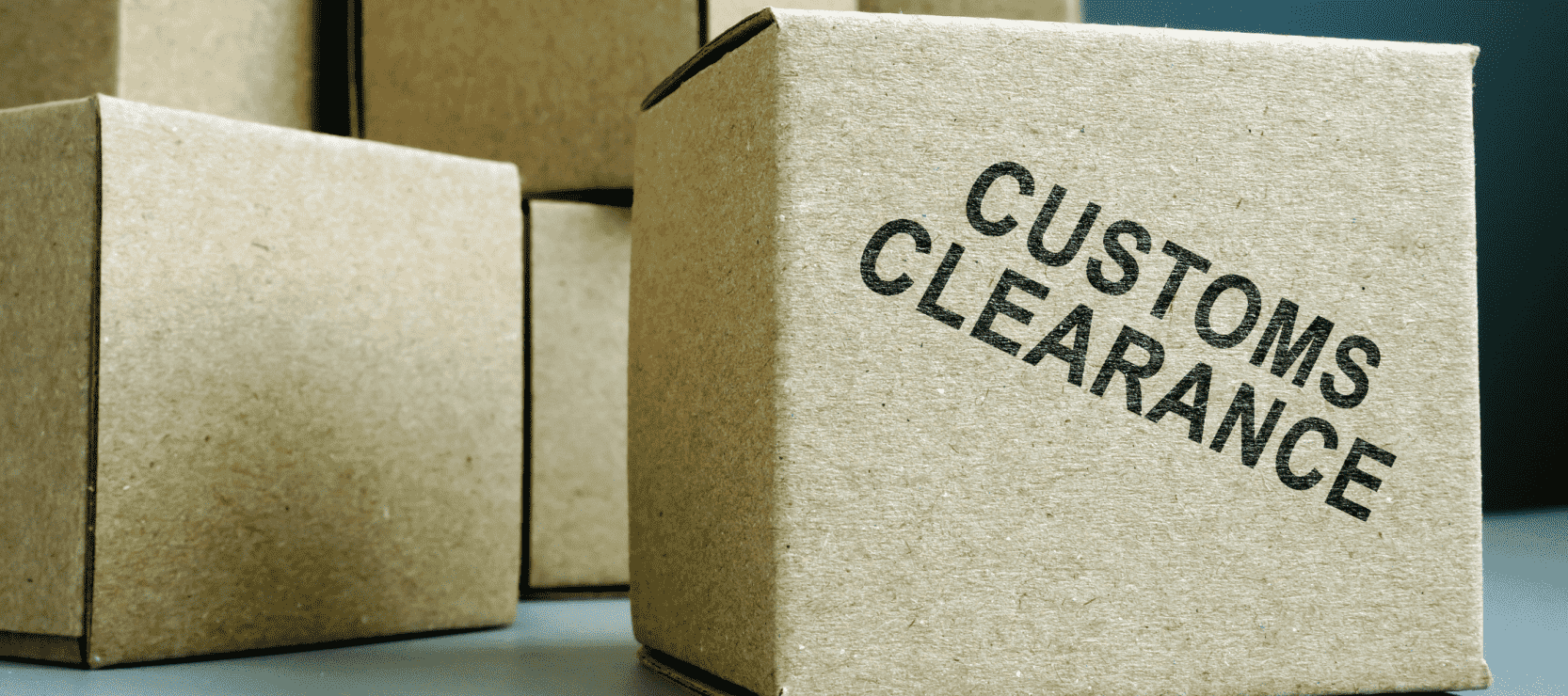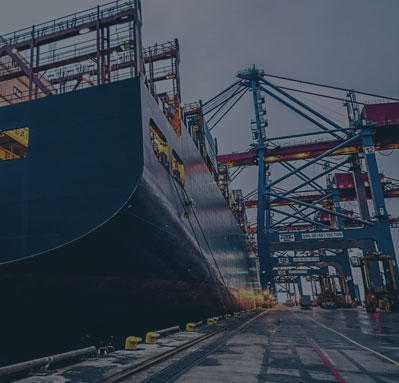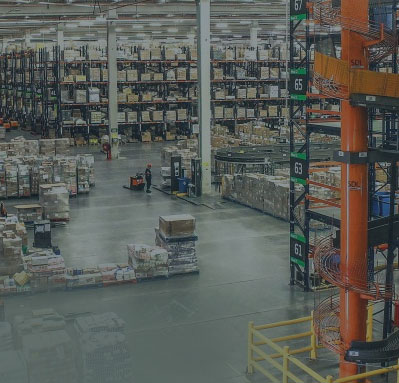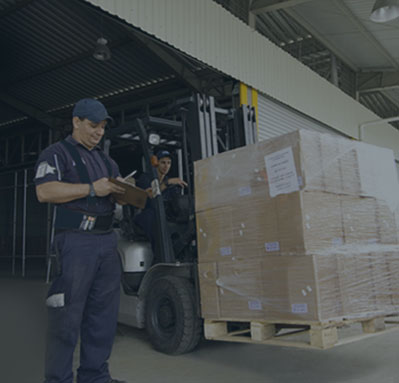There are many things to consider when it comes to shipping your goods through customs in Dubai and the rest of the United Arab Emirates. The customs clearance procedure can be often difficult to understand. So in this article, our focus is to tell you everything you need to know about Customs Clearance in Dubai and the rest of the UAE.
This article covers important topics like Import-Export Code (IEC), ATA Carnet, FTA-TRN Linking, import-export procedures, clearance documentation pre-requisites and some important customs laws in Dubai & Rest of UAE.
What is Customs Clearance?
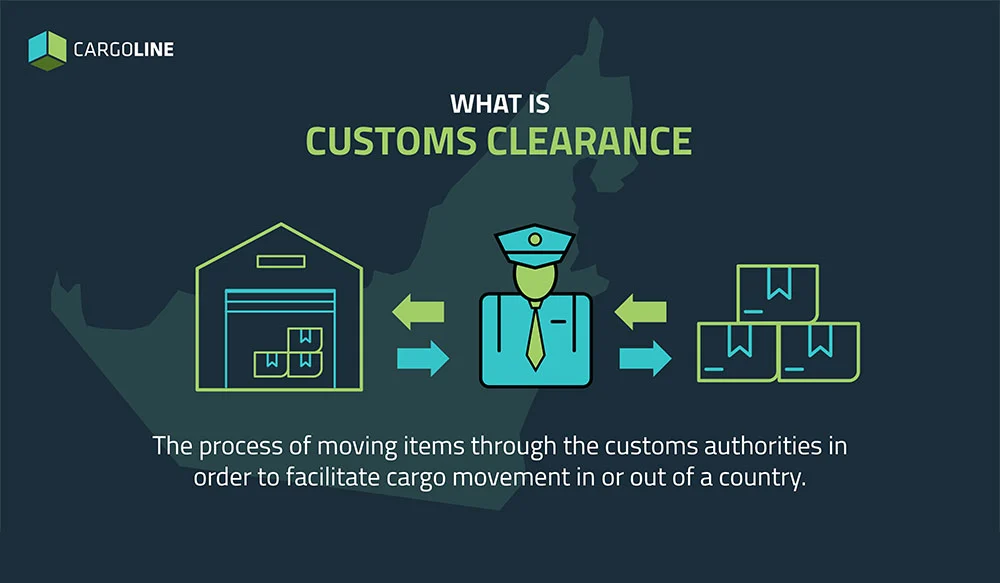
Customs clearance is the process of moving items through the customs authorities in order to facilitate cargo movement in or out of a country (import and export). The whole process of customs clearance includes identification and control at airports, seaports, and border crossings to ensure that national, international, vehicles and other cargo being imported or exported are not illegally imported or exported.
Through this process, it is confirmed that all tariffs have been paid and that all goods have been approved for export. It also includes obtaining import and export permits (also known as a customs document or declaration) to allow you to enter or leave a country or territory.
What is the Purpose of Customs Clearance?
Customs Departments are the government’s official authority for enforcing import and export rules, collecting customs duties, and facilitating people, goods, and freight movement in and out of the country.
The purpose of customs clearance is to verify and inspect the cargo being imported or exported as well as any other items that may be going through this vital process. In short, it is the act of determining if a shipment is legal and fit to be received by the intended recipient. It is also an important part of any shipping process, as it allows for timely delivery of goods.
Who is a Customs Broker?
Many countries may allow imports without restrictions, while others may require licenses. Many things are also listed as being banned from importing and entry into the nation. In addition, all things brought into the country must be processed through customs. The process often gets very cumbersome and can be difficult to handle. In such cases, you will need the help of professionals to assist you.
Customs clearance services are also provided by freight forwarders who manage international shipping. The activity is called customs brokerage and the people who do that are known as customs brokers.
Customs clearance services include preparing and submitting papers required to allow exports or imports into the country, representing customers during a customs inspection, assessment, and tax payment, and receiving shipment and documents from customs after clearance.
When you want to Import or Export items in Dubai or the rest of the UAE, Custom Clearance becomes the most significant service. According to state law, there are processes to follow. This entire process requires the preparation, submission, and approval of all required documents and permissions. As a result, you will mostly need the services of a competent Customs Broker to meet the requirements. The broker will represent the client during an inspection, assessment, duty payment, and delivery, making the entire procedure easier for them.
How do you Get Started with Custom Clearance in UAE?
Each emirate in UAE is responsible for its own customs clearance, which is controlled by a Federal Customs Authority. The Federal Customs Authority is in charge of enforcing customs policy, supervising the execution of customs-related legislation and regulations, and representing the UAE both within and outside the country.
According to GCC common customs legislation, local customs agencies perform administrative functions and create customs policies for each emirate. Abu Dhabi, Dubai, Sharjah, Umm al-Qaiwain, Fujairah, Ajman, and Ra’s al-Khaimah are the seven states of the UAE’s customs department.
All Emirates have their own customs clearance systems. A reliable and experienced freight forwarder can help you with transportation services, price negotiations with multiple carriers, and choosing the best route.
How to Apply Customs Importer/Exporter Code?
The Import-Export Code (IEC) is issued by the appropriate customs department in the UAE. It is needed to import and export goods to and from a foreign country into the UAE. A company that holds a valid trade license granted by the UAE licensing body and engages in such trade activity can apply for the UAE Import-Export Code (IEC).
Required Documents:
To apply for a customs code in Dubai, you will need:
- A copy of your current trade license
- A copy of your passport, Visa Copy, copy of Emirates ID
- An undertaking letter if you hold a professional license.
If you want to engage in import or export activities in Dubai or anywhere else in UAE, you must have a customs code. This is required in addition to your business license. To obtain a Customs Code, you must first register on the Customs website. For Dubai, you need to register on dubaitrade.ae
You have to make an Online Application and make the payment to obtain your code. Then your application will be reviewed. After it is approved, you will receive your Customs Code.
Initially, your customs code will be valid until the expiry date of your business license. Following the renewal of your business license, you must renew your code every year.
How to Link FTA TRN Number with Dubai Customs?
To collect VAT on items imported into the UAE, the Federal Tax Authority (FTA) and the UAE Customs Departments operate together. In order to clear imported goods, all VAT-registered businesses have to provide the Tax Registration Number (TRN) to the customs department.
If the Tax Registration Number (TRN) in their system is updated and found to be valid, the customs department will allow businesses to clear imported goods without paying VAT at customs if the TRN is updated and found to be valid.
You can link your TRN with Dubai customs by visiting dubaitrade.ae
- Enter your login information.
- Select “DP World VAT Profile” from the User Management menu.
- On the displayed page, complete the necessary VAT information.
- Click on submit
Wait for the confirmation message from Dubai Customs once you have completed the process.
What are the Documents needed for Customs Clearance in UAE?
International trade requires accurate and full paperwork that fits the standards and rules established by both the origin and destination countries. It’s critical to have detailed information about your shipment, business, and why it’s being shipped. Your shipping paperwork has an impact on the fate of your goods, and if it isn’t completed correctly, your shipment may be delayed or held at customs.
The required documents (original) are given below:
- Bill of Landing + Copy ( Lading )
- Invoice on Shipper’s Letterhead with stamp & signature
- The packing list on the shipper’s letterhead with stamp & signature
- Certificate of Origin
- Phytosanitary – Food Related
- Health Certificate – Food Related
- Certificate of Analysis – Food Related
Import Clearance Procedure
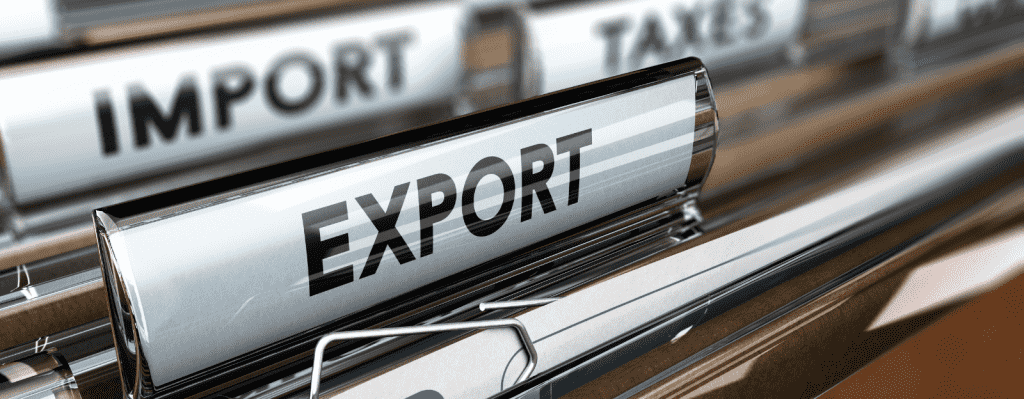
Import customs clearance is determined by the importing country’s policies and procedures, the nature of goods, and the trade agreement between the two countries. You will need a certain set of documents in original to import goods in UAE.
The list of the required documents is as follows:
- Import Permit
- Commercial Invoice
- Certificate of Origin
- Packing List (If Any controlling authority)
- Bill of Lading
- Letter of Duty Exemption (From Ministry of Finance)
- Original Certificate of Health (for a food product)
- Original Certificate of Halal Slaughter (for a food product)
For restricted/prohibited/duty exempted products, the importer must have an authorized permit After which, he submits an Import Declaration form for UAE customs clearance.
To clear customs of an import shipment arriving at a Dubai, you will need all of these documents. If it’s ocean freight, you’ll need a Bill of Lading, and if it’s air freight, you’ll need an Airway Bill which will be exchanged with the delivery order from the concerned shipping company or airline.
The customs broker will prepare the import documentation and submit the request to customs after they get the delivery order and all necessary documents.
The broker will pay customs duty and clear all port dues once customs approves the application. Then they will arrange for the shipment to be picked up from the port and get it delivered to your doorstep. Please keep in mind that all of the documents must be originals. In case documents are missing or in soft copy, extra charges will be charged by customs.
Export Clearance Procedure
The list of the required documents is as follows:
- Sales Invoice ( Invoice/ Commercial Invoice)
- Packing List
To clear the customs for an export shipment to a Dubai seaport or airport, you’ll need all of the necessary documents.
The export procedure is less complicated than the import procedure. All you have to do is provide the shipment company with the original required documents, and they will compile the export documentation and obtain customs permission.
Then, according to the cargo, transportation will be arranged to load it from the designated site and send it to the port for export.
How to Clear the ATA carnet shipment?
The ATA Carnet, also known as the “Passport for Goods,” is a customs agreement that allows for the tax-free and duty-free temporary export and import of non – perishable commodities for up to a year.
The following procedure must be followed at Dubai Customs in order to admit an ATA Carnet.
- The owner of the Carnet will present the Carnet to Customs at the point of entry, after which Customs will check the goods.
- Customs processes an ATA Carnet Temporary Admission Bill without any deposit or service charges.
- Customs then stamps the ATA Carnet Import counterfoil and keeps the voucher. The ATA Carnet is then imported.
The following process has to be followed at Dubai Customs to export the ATA Carnet:
- The client goes to the Dubai Chamber of Commerce and Industry and requests an ATA Carnet for the countries he intends to visit.
- The Chamber receives a guarantee and issues an ATA Carnet.
- The client must present the ATA carnet as well as the goods to Dubai Customs where the goods are inspected by Customs.
- Then the Customs processes an ATA Carnet Export Bill, stamps it with the ATA Carnet counterfoil, and keeps the voucher.
Important Customs laws in UAE
You have to be mindful of some customs regulations while dealing with customs clearance in UAE. International Trade Administration mentions the Customs Regulations for the United Arab Emirates. They are as follows.
- There are around 45 Free Trade Zones in the United Arab Emirates. Under the GCC’s Common Customs Law, goods destined for the UAE’s mainland are subject to duty, while goods destined for FTZs are duty-free.
- Re-exports of goods from UAE Free Trade Zones to third-market destinations outside the GCC Customs Zones are likewise duty-free.
- Goods destined for the Mainland or FTZs for sale in the UAE and/or re-export to GCC countries are subject to customs import charges imposed by the Federal Customs Authority and the GCC Common Customs Law. As a result, products can be transported across GCC Customs Offices, allowing foreign goods to transit from one member state to another.
- The United Arab Emirates has implemented a 5% VAT. If a company’s taxable supply and imports total more than $102,000 per year, it must register for VAT. It is optional for companies with annual supply and imports of more than $51,000.
- Businesses that are not VAT registered are unable to charge VAT on their sales or collect any tax-related fees incurred on their inputs.
Paying customs duties in UAE
Customs duties and taxes are calculated using the CIF value. The UAE has agreed to the GCC Common Tariff, which comprises customs taxes of 5% of the CIF value of the majority of commodities.
Alcoholic beverages, sweetened beverages, and carbonated beverages are subject to a 50% tax and other commodities like e-cigarettes are subject to a 100% tax. Customs duties on pharmaceuticals and agricultural products are waived.
Alcohol, tobacco, weapons, and pig products are all prohibited from entering the country. If the total value of your purchases exceeds 1000 AED, you will be charged a 5% tax on your shipment.
Certain products are exempt from UAE customs taxes and are specified in the GCC Common Customs Law. The UAE FCA Unified Customs Tariff contains information on goods that are tariff-free upon entering UAE
How Can You Lower Your Custom’s Risk?
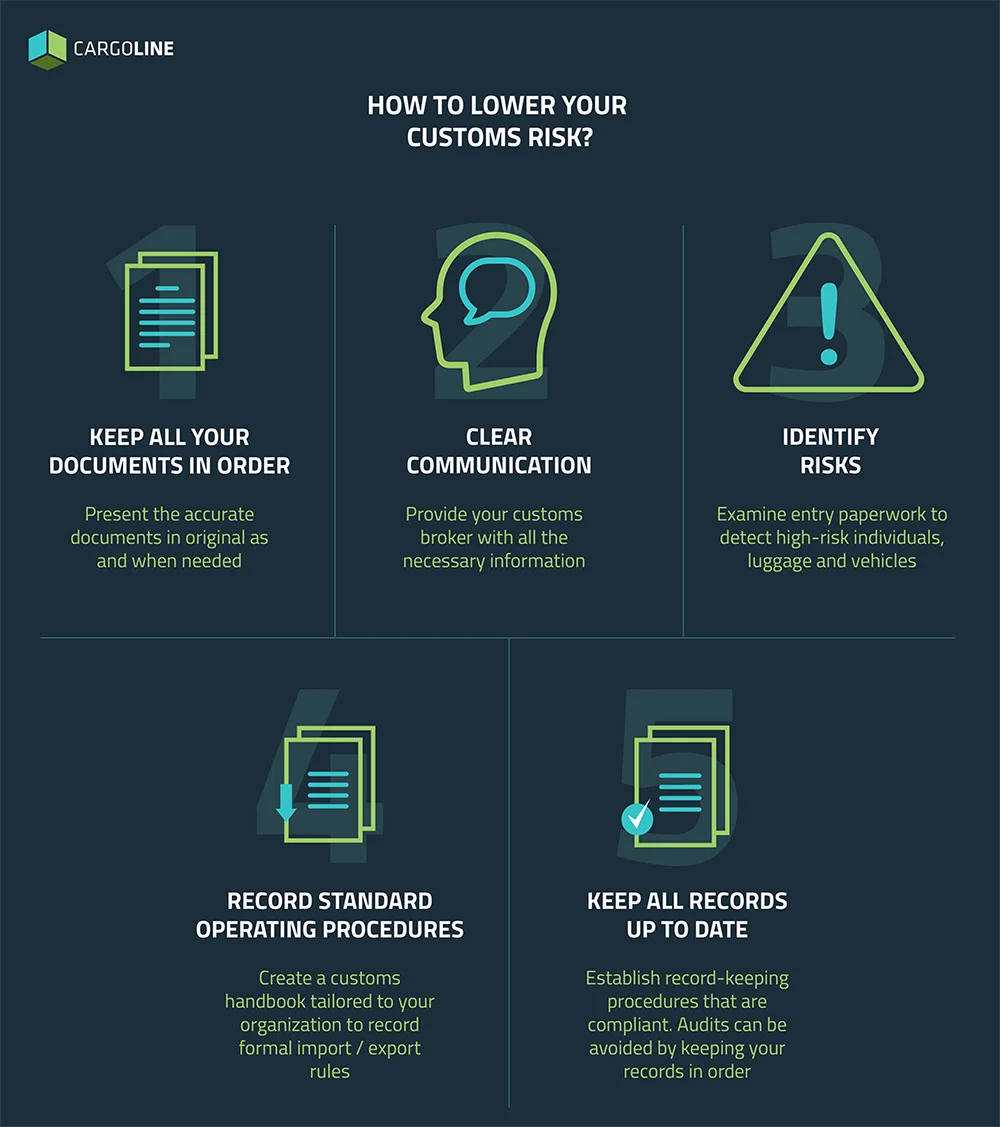
You can lower your risk and make importing and exporting easier by preparing and planning ahead. Here are the steps to lower your custom’s risk:
- Keep all your documents in order and present the accurate documents in original as and when needed.
- To avoid confusion or miscommunication, you should provide your customs broker with all the necessary information.
- Do a pre-clearance and post-clearance audit to identify risks. Examining entry paperwork in order to detect high-risk individuals, luggage, and vehicles is important.
- Formal Import/export rules and standard operating procedures should be established. This ensures that no steps are skipped throughout the import or export process. Creating a customs handbook tailored to your organization is an excellent place to start.
- Establish record-keeping procedures that are compliant. Audits can be avoided by keeping your records in order. It is essential that your records are kept up to date and easily accessible.
Which Customs Broker to Choose and Why?
It is not absolutely essential to avail the services of a customs broker but it is better to be safe. You are solely responsible for properly understanding the regulations and requirements in order to submit the papers. However many businesses and organizations engage custom brokers to avoid costly mistakes or because they lack sufficient knowledge of the customs clearance process.
While choosing a customs broker, kindly ensure they:
- Are reliable and dedicated
- Have experience of your industry.
- Are licensed and approved.
- Are able to handle your cargo volume.
- Are acquainted with the trade route of your cargo (origin and destination).
A skilled customs broker can help you save money by assisting you with the necessary paperwork and product inspection. When it comes to foreign trade, the clearance process can be complicated. So importers often hire a customs broker to assist them with the customs clearance process to avoid any hassles.
